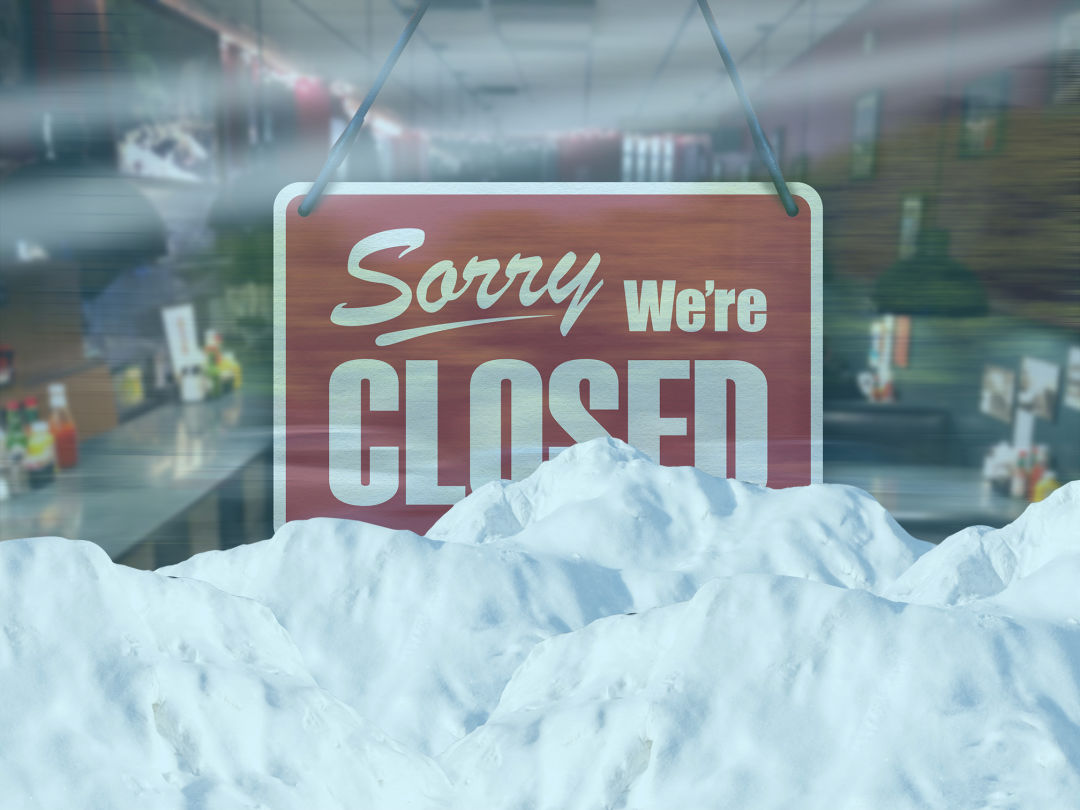Portland’s Restaurants Seek Emergency Funding after Crippling Ice Storm

Image: Castleski/shutterstock.com
Chef Naomi Pomeroy—of Beast fame—once told us a hard truth of the restaurant industry: “Whether your place is two months old or 20 years old, your cash this week pays last week’s bills.” She was speaking as a representative of the Independent Restaurant Alliance of Oregon, a collective of independent restaurateurs and chefs that banded together in March of 2020 to ensure that small food businesses’ voices were heard by policymakers. Pomeroy’s statement rings prophetic. After closures due to last week’s ice storms, the state’s independent restaurants are once again fighting to save their businesses.
The group convened this past week, in a situation eerily similar to those first days of the pandemic. They surveyed restaurateurs to self-report financial losses incurred because of storm closures. Sixty percent call their losses “catastrophic,” reporting an average of $28,000 in lost revenue and supplies, and $1,800 in lost wages per employee—of which there are 185,000 across the state. Then, in a letter to Governor Kotek, mayors, and council members in affected counties, IRAO asks for immediate financial aid as well as a long-term shift in the way the city handles extreme weather events. Storms that shut down roads and transportation systems are “not an anomaly,” the letter reads, referencing the state’s lack of timely de-icing and plowing despite a years-long pattern of similar storms.
Fed Up
Erika Polmar, executive director of the Independent Restaurant Coalition, a national organization that formed during the pandemic, also helped found IRAO, and still works as a volunteer advisor for the organization (the two are not formally connected). She says it’s crucial for independent restaurateurs to be “heard in the halls where policy decisions are made,” and not be overshadowed by “the big guys.” She adds that the financial carnage spreads far beyond restaurants. Closed restaurants have a domino effect on Oregon’s food system: farmers and fisheries, suppliers and distributors, businesses that depend on these restaurants buying their products.
IRAO suggests two “survival strategies”: immediate financial relief and longer-lead systemic changes. These include a 90-day suspension of payroll taxes for restaurants with under 100 employees; a 90-day moratorium on commercial restaurant evictions; and a relief fund—made up of grants and low-interest loans—to help business owners offset the immediate financial woes. In simple terms, the proposal is to put a week’s worth of cash in restaurateurs’ pockets to pay the previous week’s bills.
Longterm, IRAO proposes improved storm reaction from the county and state, including more “trucks on the road,” as well as enhanced preventative tree-canopy maintenance, mitigating the dramatic tree-fall events that down power lines and destroy property—issues that spread far beyond restaurants, but dramatically affect them.
Getting Proactive
Carlo Lamagna, owner of Filipino restaurants Magna Kusina, on Southeast Clinton Street, and Magna Kubo, in Beaverton, says his Southeast Portland restaurant alone has lost $25,000 in revenue. “It may not seem like a lot,” he says, “but to us, that’s payroll.” He’s been involved with the organization from the start, because, he says, chain restaurants have the scale to swallow the losses, and bargaining power to sway politicians, “but it’s us independent small owners that run on slim margins that are going to suffer.”
He grew up in the Midwest, and is baffled by the dramatic way the city shut down during what could have been a more minor weather event. “We become the butt of the joke,” he says. But he’s scared to see which of his peers might not be able to keep their businesses afloat. He hopes for financial aid and preventative measures.
“Let us catch our breath,” he says. “Let us come back from this.”




